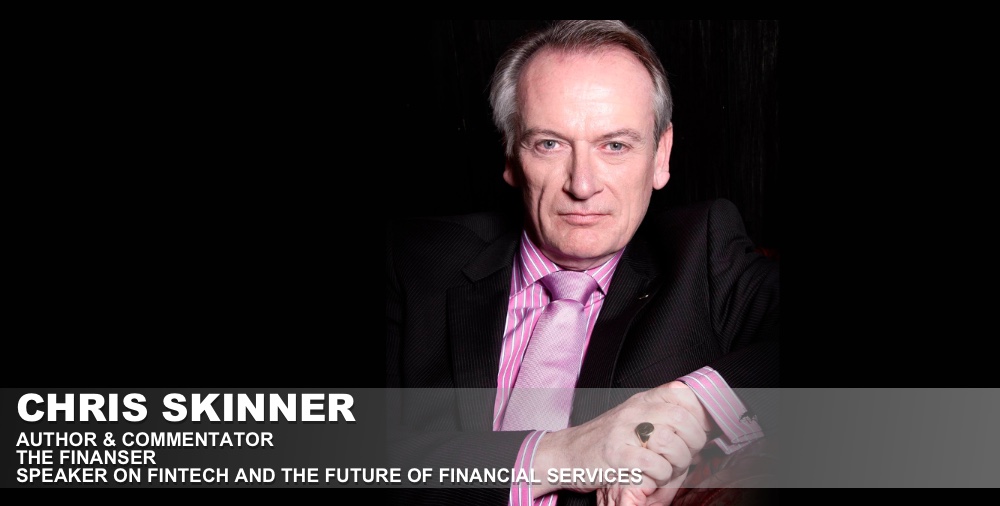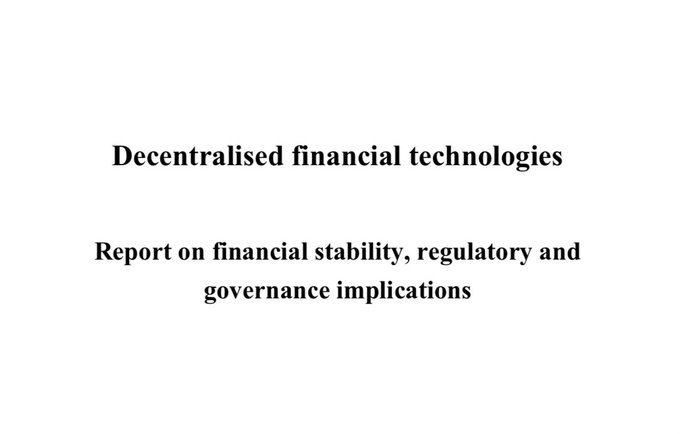
an article written by Chris Skinner, the most influential person in technology in the UK, international best selling author, top worldwide speaker on fintech banking. Chris will give a keynote speech at Banking 4.0 – international fintech conference.
I got a tweet the other day pointing me to a report from the Financial Stability Board about the use of decentralised technologies for financial services.


Excellent report from the Financial Stability Board @fsb about the impact of decentralized #fintech@JimMarous @SpirosMargaris @Xbond49 @jblefevre60 @UrsBolt @leimer @Chris_Skinner @RAlexJimenez #finserv #DeFi #DLT #payments #lending
https://www.fsb.org/wp-content/uploads/P060619.pdf …

Clicking through to read the report, from June this year, it is interesting. It notes that decentralising finance can be effective in areas like payments and trade finance, but that there is not one way of doing this.
There is:
Decentralisation of decision-making. This involves a move away from a single trusted financial intermediary or infrastructure towards systems in which a broad set of users is able to make decisions about whether and how to undertake financial transactions.
Decentralisation of risk-taking. This involves the shift away from the retention of risk (e.g. credit and liquidity risk) on the balance sheets of individual traditional financial intermediaries towards more direct matching of individual users and providers of financial services.
Decentralisation of record-keeping. This involves a move away from centrally held data and records, towards systems in which the ability to store and access data is extended across broader consortia of users. Verification of such data and records may also be more distributed, for example via consensus mechanisms.
Here’s the full intro:
Financial technology (FinTech) is changing many facets of finance. These include retail and wholesale payments, financial market infrastructures, investment management, insurance, credit provision and capital raising. Global investment in FinTech rose to a record US$112 billion in 2018.
Nascent technologies such as distributed ledgers, cloud services, big data, and artificial intelligence (AI) are being tested for a wide variety of financial operations, to make them faster, more robust and less costly.5 Their impact on financial services could be broad, and their applications include the settlement of interbank payments and the verification and reconciliation of trade finance invoices. They may also play a role in executing, enforcing and verifying the performance of contracts.
This report focuses on applications of technologies that may reduce or eliminate the need for one or more intermediaries or centralised processes in the provision of financial services.
These are termed decentralised financial technologies. Such technology can facilitate a move away from single entities that grant access to and validate transactions, towards the decentralisation of information recording (e.g. via distributed ledgers) as well as the process by which it is updated (e.g. consensus mechanisms).
Technology is also facilitating the decentralisation of risk-taking and decision-making. For example, peer-to-peer (P2P) lending and insurance are, in places, shifting credit and other risks away from a single entity (e.g. a bank or an insurer) to individual savers (or pools thereof). Entities that use these technologies may have no clear location or multiple locations across jurisdictions, some of which may change over time (e.g. via the flexible configurations of servers).
The technologies underlying such applications may themselves be decentralised. Such technologies – for example distributed ledger technology (DLT), which can store information in a decentralised manner – are the focus of this report. But technologies that underlie decentralised provision of financial services need not, themselves, be decentralised. For example, cloud computing or technology based on AI and machine learning may be provided in a centralised manner, but still be used to provide decentralised financial services through online platforms.
Bearing this distinction in mind, this report identifies specific technologies that enable the decentralisation of financial activity and assesses which financial services are beginning to see various forms of decentralisation. It also makes a preliminary assessment of the implications of these technologies for financial stability, and some issues this might raise for financial supervision and regulation.
About the author
Chris Skinner is best known as an independent commentator on the financial markets through his blog, TheFinanser.com, as author of the bestselling book Digital Bank, and Chair of the European networking forum the Financial Services Club. He has been voted one of the most influential people in banking by The Financial Brand (as well as one of the best blogs), a FinTech Titan (Next Bank), one of the Fintech Leaders you need to follow (City AM, Deluxe and Jax Finance), as well as one of the Top 40 most influential people in financial technology by the Wall Street Journal’s Financial News. To learn more click here…
Banking 4.0 – „how was the experience for you”
„To be honest I think that Sinaia, your conference, is much better then Davos.”
Many more interesting quotes in the video below: